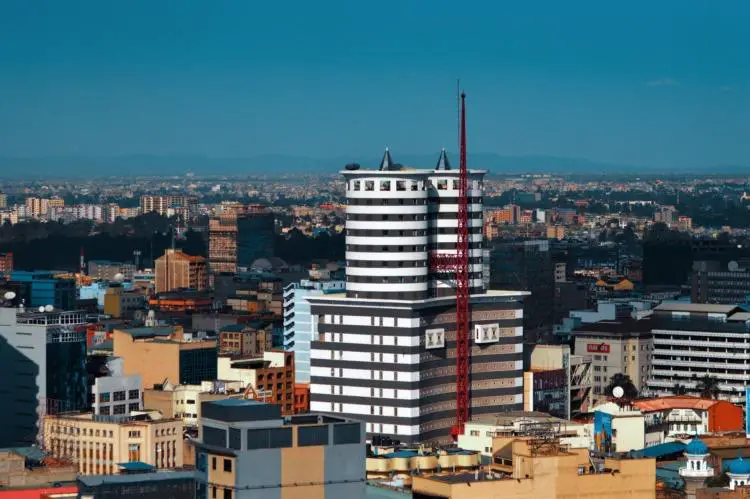- EY Kenya expects the Kenyan economy to rebound and grow by 5 per cent in 2022
- The country is currently in the throes of elections, drought and the negative effects of the COVID-19 pandemic
- The growth will be achieved at the back of various intervention measures rolled out in fighting the COVID-19 pandemic
Global Audit firm, EY Kenya said it expects the Kenyan economy to rebound and grow by 5 per cent in 2022.
Though the country is currently in the throes of elections, drought and the negative effects of the COVID-19 pandemic, EY Kenya said that the fundamentals should position the country to defy negative growth patterns as earlier projected.
The firm said that the growth will be achieved at the back of various intervention measures that have been rolled out by the government in fighting the covid 19 pandemic.
“Kenya appears to have weathered this pandemic and the expectation is that high employment sectors such as tourism and industry will recover,” Frank Mwiti the firm’s head of Markets said yesterday in Nairobi.
He said that further growth will be achieved once the country starts enjoying the benefits of infrastructure development.
“Typically, we expect infrastructure to play a key role in rebounding the economy in the next year,” he said.
“But the bigger story is the way the government has worked around the clock rolling out the mass vaccination campaigns,” he added.
Mwiti was speaking in Nairobi during the launch of the EY Africa Attractiveness Report. This is a document that looks at the trends and factors that determine and drive investment decisions across the continent.
Mwiti said that the only challenge facing future growth is the current drought that has affected several parts of the country.
“The prolonged drought might only be the downside to this positive trend,” he said.
The audit firm has also asked the government to invest more towards improving the business climate in anticipation of the Africa-wide free trade area [FTA].
He named technology, finance, health and hospitality industry that are crying for more government attention and which hold the key to growth.
“It is only the economies that will diversify into none-traditional sectors that will sustain their growth. Kenya should join other African economies that have moved away from extractive-based economies.”
According to the African attractiveness report, Africa along with the rest of the world was significantly impacted by the COVID-19 pandemic in 2020. It witnessed one of its worst economic recessions in 50 years, heightened by weak health care systems and infrastructure.
Overall GDP contracted by 2.4 per cent in 2020, less than the 3.6 contractions in global GDP, 6.7 per cent in the Eurozone and 4.3 per cent in the Americas.
“The outlook for 2021 looks mixed, with government recovery measures varying by country,” the report says.
“We believe that the private sector involvement, slowly recovering trade, rising commodity and crude prices, rebounding tourism and strong agricultural output will determine Africa’s recovery prospects.”
The EY attractiveness Report is projecting Africa’s economy to grow by 4.6 per cent in 2021 “but mounting debt, high unemployment, slow vaccination rollouts, political unrest in certain regions, lack of basic infrastructure and rising poverty levels pose risks to this outlook.”
Drought
The report comes at a time when vulnerable communities in the IGAD region continue to experience a complex mix of re-enforcing shocks and stresses that are eroding their resilience to food and nutrition insecurity.
As of October 2021, 26 million people were already facing high levels of food insecurity, according to the Food Security and Nutrition Working Group (FSNWG), which is co-chaired by the Inter-governmental Authority on Development (IGAD) and the Food and Agriculture Organization of the United Nations (FAO).
Due to the threat of worsening drought conditions, food insecurity will likely rise during the first half of 2022 across the Horn of Africa.
Kenyan children will face more drought seasons in their lifetime
The organisations warned that utgent action is required now to safeguard livelihoods, save lives, and prevent possible starvation in some areas.
Drought conditions are already affecting the arid and semi-arid lands of Kenya, southern and central Somalia, and Belg-receiving areas of southern and south-eastern Ethiopia as consecutive poor rainfall seasons have driven below-average crop production, rising cereal prices, poor rangeland conditions, reduced livestock production, and drought-related animal deaths in many areas.
Moreover, as forecast by the IGAD Climate Prediction and Applications Centre (ICPAC), the start of the current October-December 2021 rainy season has been significantly delayed, with little to no rainfall observed to date in many areas, raising the probability of another poor season.
Should this occur, agricultural and pastoral conditions will further deteriorate, causing households already struggling with the effects of multiple, concurrent hazards (climate variability, conflict, COVID-19, and desert locusts) to employ negative coping strategies and reduce their food consumption.
This is a major source of concern as food insecurity in the region has historically increased sharply following consecutive poor rainfall seasons.
Failed rain seasons pushing millions of Kenyans to drought
